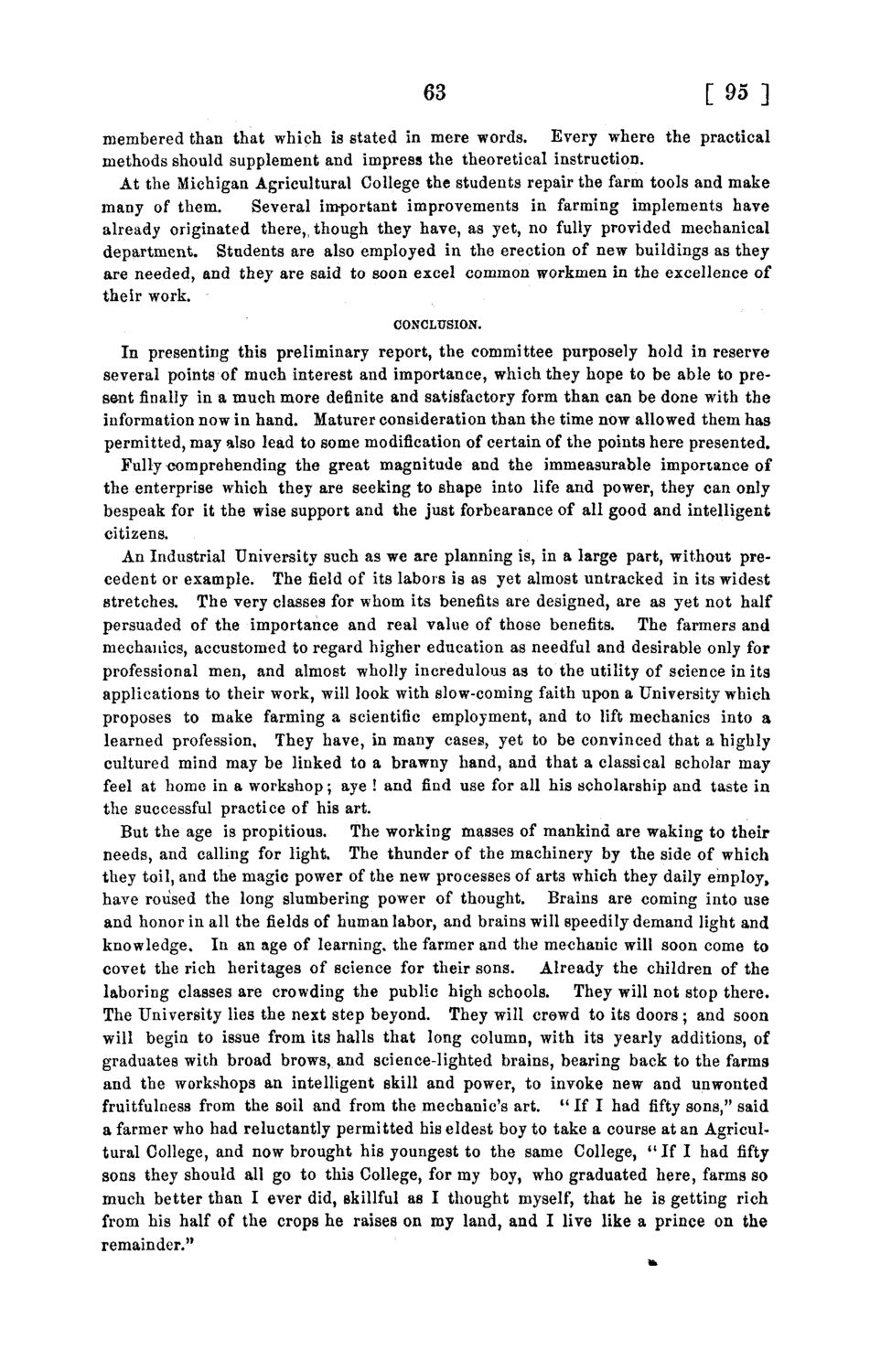| |
| |
Caption: Board of Trustees Minutes - 1868
This is a reduced-resolution page image for fast online browsing.

EXTRACTED TEXT FROM PAGE:
63 [95] membered than that which is stated in mere words. Every where the practical methods should supplement and impress the theoretical instruction. At the Michigan Agricultural College the students repair the farm tools and make many of them. Several important improvements in farming implements have already originated there, though they have, as yet, no fully provided mechanical department. Students are also employed in the erection of new buildings as they are needed, and they are said to soon excel common workmen in the excellence of their work. CONCLUSION. In presenting this preliminary report, the committee purposely hold in reserve several points of much interest and importance, which they hope to be able to prese-nt finally in a much more definite and satisfactory form than can be done with the information now in hand. Maturer consideration than the time now allowed them has permitted, may also lead to some modification of certain of the points here presented. Fully comprehending the great magnitude and the immeasurable importance of the enterprise which they are seeking to shape into life and power, they can only bespeak for it the wise support and the just forbearance of all good and intelligent citizens. An Industrial University such as we are planning is, in a large part, without precedent or example. The field of its labors is as yet almost untracked in its widest stretches. The very classes for whom its benefits are designed, are as yet not half persuaded of the importance and real value of those benefits. The farmers and mechanics, accustomed to regard higher education as needful and desirable only for professional men, and almost wholly incredulous as to the utility of science in its applications to their work, will look with slow-coming faith upon a University which proposes to make farming a scientific employment, and to lift mechanics into a learned profession. They have, in many cases, yet to be convinced that a highly cultured mind may be linked to a brawny hand, and that a classical scholar may feel at home in a workshop; aye ! and find use for all his scholarship and taste in the successful practice of his art. But the age is propitious. The working masses of mankind are waking to their needs, and calling for light. The thunder of the machinery by the side of which they toil, and the magic power of the new processes of arts which they daily employ, have roused the long slumbering power of thought. Brains are coming into use and honor in all the fields of human labor, and brains will speedily demand light and knowledge. In an age of learning, the farmer and the mechanic will soon come to covet the rich heritages of science for their sons. Already the children of the laboring classes are crowding the public high schools. They will not stop there. The University lies the next step beyond. They will crowd to its doors ; and soon will begin to issue from its halls that long column, with its yearly additions, of graduates with broad brows, and science-lighted brains, bearing back to the farms and the workshops an intelligent skill and power, to invoke new and unwonted fruitfulness from the soil and from the mechanic's art. " If I had fifty sons," said a farmer who had reluctantly permitted his eldest boy to take a course at an Agricultural College, and now brought his youngest to the same College, " If I had fifty sons they should all go to this College, for my boy, who graduated here, farms so much better than I ever did, skillful as I thought myself, that he is getting rich from his half of the crops he raises on my land, and I live like a prince on the remainder."
| |